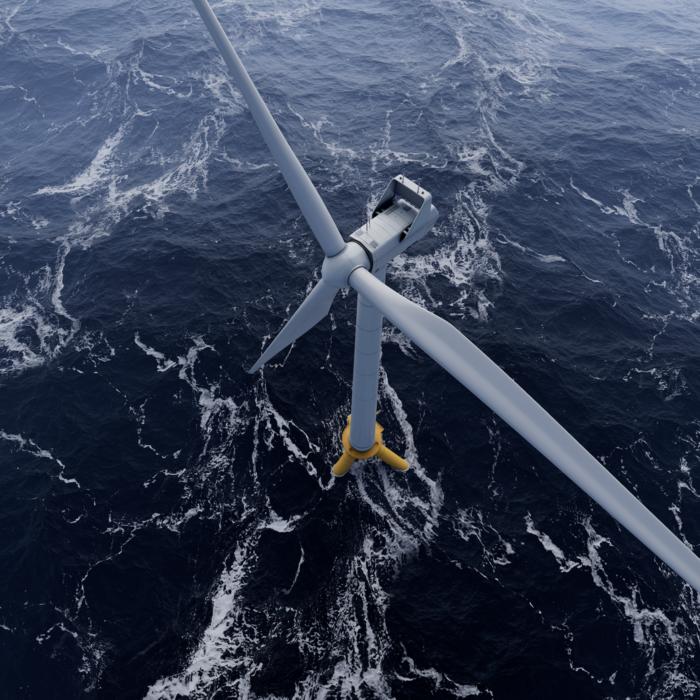Innovate UK has awarded funding to further optimise a unique and flexible floating offshore wind platform for applications in the Celtic Sea, a collaboration involving Swansea University.

Credit: Marine Power Systems.
Innovate UK has awarded funding to further optimise a unique and flexible floating offshore wind platform for applications in the Celtic Sea, a collaboration involving Swansea University.
The funding will help establish the Launchpad project to ensure that, where possible, a local supply chain will support the fabrication, manufacture, and deployment of the platform, known as PelaFlex.
Led by Marine Power Systems, Swansea University’s Department of Mechanical Engineering will be working with Ledwood Mechanical Engineering, Tata Steel UK, ABP (Associated British Ports) Port Talbot, and the Port of Milford Haven on the project, which is worth over £800,000.
Launchpad will optimise PelaFlex’s structural efficiency, paying particular attention to the challenging environment in the Celtic Sea while minimising the cost of materials and deployment. This includes using strip steel manufactured in Port Talbot, components fabricated by local suppliers, and assembly and rollout using existing ports in southwest Wales.
Swansea University will provide design input by applying the latest developments in structural design modelling, and Ledwood, based in Pembrokeshire, will provide feedback that will help maximise the extent to which local suppliers can support fabrication.
Input from Associated British Ports and the Port of Milford Haven will ensure that the platform can be assembled and deployed from those locations whilst minimising the investment required to do so.
The project will support Tata Steel UK’s vision to decarbonise Port Talbot’s steel production, one example being the production of green strip steel using an electric arc furnace. It will also help position the town as an industrial hub for the development and deployment of offshore wind.
Dr Will Harrison, Senior Lecturer in Mechanical Engineering at Swansea University, said: “It is a great opportunity to be working with MPS, Ledwood, Tata Steel, the Port of Milford Haven and ABP Port Talbot to deliver this exciting project. Each of the partners brings different and complementary expertise to this engineering challenge, and the project really showcases the potential of industry in South-West Wales. MPS has developed a world-class concept which we are really excited to help them optimise, using experience in computation techniques at Swansea University and to support local industry.”
Graham Foster, Chief Technology Officer at Marine Power Systems, commented: “We are really excited to receive support through Innovate UK. With the deployment of floating offshore wind in the Celtic Sea becoming a reality the time is absolutely right to work with local supply chain to optimise the detailed design of our technology and maximise its deliverability. A good example of that, is that we are confident that through this project we will be able to optimise our platform design to increase the amount of local steel used to fabricate it from around 10% to over 50%.”
Mark Davies of Ledwood Mechanical Engineering commented: “Launchpad represents another step forward for the emerging floating offshore wind industry. As a locally-based engineering company, we are pleased to be working with MPS, Tata Steel, the Port of Milford Haven, ABP Port Talbot and Swansea University to help build a local supply chain by capitalising on the skills, expertise and infrastructure that we have here in South-West Wales. This is an exciting time for us and we hope the region can take advantage of the opportunities that will soon emerge.”



